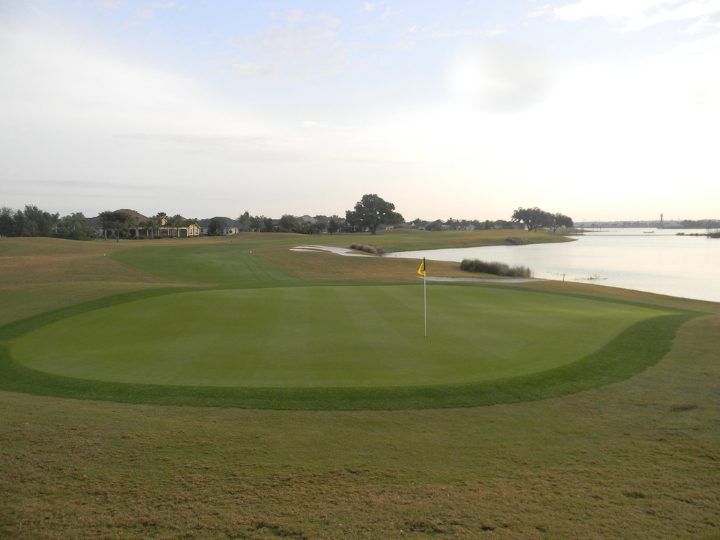Managing a golf course can be challenging and requires a balance of skills, knowledge, and experience. From maintaining the course to ensuring that players have an enjoyable experience, there are many factors that can influence the success of a golf course. Therefore, finding the most effective way to manage a golf course is essential for its long-term success.

Consistent Pest Control
Golf courses require various types of pest control to maintain the health and appearance of the course. There are three main control methods that you should consider in doing pest control for your golf course. A golf course maintenance service could be the perfect choice for outsourcing this task and achieving optimal results.
- General insect control involves managing small creatures like flying insects, ants, and beetles that can damage turf and flowers. The commonly used insecticides on golf courses include lambda-cyhalothrin, imidacloprid, and thiamethoxam, which must be applied correctly to avoid harming neighboring plants or animals.
- Weed and grass control are also essential to maintain fairways and greens. Herbicides like glyphosate, glufosinate-ammonium, and bromoxynil are effective against broadleaf weeds. Grasses can be controlled with herbicides like clopyralid or flumioxazin. It is crucial to read the label carefully before using these herbicides as they may affect nearby plants.
- Tree care is also an integral part of pest management on golf courses, as fungal diseases like Dutch elm disease can be spread by beetles feeding on affected trees. Tree pruning may also be necessary to remove dead or diseased branches that could act as conduits.
Thorough Evaluation of the Golf Course
To effectively maintain a golf course, it is important to conduct a thorough evaluation of the area. Although, it is a good idea to consider outsourcing this to a golf course maintenance service. This includes identifying any potential hazards, such as trees or shrubs that could be damaged by cleaning equipment and areas where water may accumulate. Prior to commencing the cleaning process, be sure to clear away any debris in these identified areas.
Once the assessment is complete, begin the cleaning process by saturating the entire area with water using a hose. It is important to ensure that the water flows evenly and to avoid spraying any areas near buildings or individuals. After the ground has been thoroughly soaked, use a brush or push broom to scrub away any dirt or debris that may be present. If necessary, add more water to assist in loosening any remaining dirt.
Upon completion of the cleaning process, rinse all surfaces with fresh water and completely dry them before allowing play to resume. By following these steps, the golf course can be maintained to ensure the safety of the environment and enhance the playing experience for golfers.
Manage the Bunkers Efficiently
To maintain bunkers in top condition, several ways should be followed. First, create multiple access points for motorized rakes for each bunker, ensuring easy and efficient maintenance. Next, it’s crucial to have proper drainage systems in place, preventing water from other areas from entering the bunkers. Additionally, bunkers should be raked daily to remove footprints and maintain a level playing surface.
The sand depth in the bunker should be kept between 4-6 inches to provide an appropriate challenge for golfers. Finally, regularly mowing the turf around bunker edges can help keep the area looking tidy and well-maintained. If you want the best possible outcome, it’s worth considering outsourcing this task to a golf course maintenance service.
Following the guidelines established by the United States Golf Association (USGA) for golf course design, construction, and maintenance is crucial for ensuring the highest level of upkeep. Following these guidelines, golf courses can provide a consistent and enjoyable experience for players of all skill levels.
Bunkers are an integral part of any golf course, challenging players to demonstrate their skills in sand play or to avoid hitting the sand altogether. They provide a temporary obstacle that requires skill, determination, and a bit of luck to overcome. In fact, more than 52% of golfers consider high-quality bunkers to be essential to their overall golfing experience.

Remove Marks on the Course
In order to ensure that golf games are played on surfaces with predictable slopes, speeds, and putting conditions, golf superintendents should assign a staff member to inspect each green using a specialized tool designed for repairing ball marks. By doing so, all visible marks can be quickly and efficiently removed, guaranteeing that the course is properly maintained and members are satisfied.
The easiest yet most efficient way to keep members happy and guarantee that the golf course is consistently in excellent condition is to perform this particular maintenance task.
One of the foremost priorities for any country club is the daily removal of ball marks. These marks are created when golf balls drop onto the turf, leaving indentations that can make the putting green uneven. This, in turn, can cause golfers to misdirect their putts, resulting in a subpar game.
Repair Divots
Divots on a golf course are often caused unintentionally when players cut the turf during their swings or shuffle their feet. The degree of damage caused by divots on a daily basis depends on the number of players and the size of the course. Courses with low traffic tend to have less frequent damage from divots, while heavily-used courses require more frequent repairs. To ensure quality and efficiency, outsourcing this to a golf course maintenance service may be the way to go.
To ensure that players remain satisfied, maintenance teams must routinely repair divots as they not only detract from the visual appeal of the course but can also negatively impact gameplay. Divots located on the primary field of play, including the tee box, fairway, and greens, are especially critical to fix promptly.
Therefore, regular maintenance is necessary to keep the course in excellent condition, and divot repair is an essential aspect of this maintenance. The number of repairs required each day will depend on the volume of play on the course. A well-maintained course ensures that players have a positive experience and can enjoy their game to the fullest.
Mowing Frequency
Maintaining your golf course is a critical task that requires regular mowing to ensure the greens are playable, prevent erosion, and establish a proper irrigation system. While professional staff typically handles course maintenance, there are ways for you to contribute to the course’s upkeep.
Knowing the right time to mow your course is crucial. During fall and winter when the turf is dormant, you can mow less frequently. However, as the grass grows faster during spring and summer, it will require more attention.
Mowing the golf course on wet days or during rainstorms should be avoided as it can lead to water damage, runoff, or flooding. It is advisable to wait until things have dried out before using the lawnmower. If mowing during rain, it is essential to wear rubber gloves and take precautions to avoid exposure to water. Additionally, it is crucial not to leave clumps of grass on the blade, which can easily catch fire if caught between the blade and the cylinder. Lastly, it is recommended to use light pressure when cutting the grass to avoid unnecessarily damaging or stripping down the blades.
Conclusion
Managing a golf course requires a multifaceted approach that takes into account the needs of the course and the players. The most effective way to manage a golf course is to prioritize the maintenance of the course while also creating a positive experience for players. By following these principles, golf course managers can ensure that their course remains successful and enjoyable for years to come.
Discover how DTE Golf® can help you in getting unmatched quality and unbeatable service, maximizing your golf course’s potential.
Reference:
https://hackmd.io/@dtegolf-FL/HyYLKC_ns
https://www.getmaintainx.com/blog/what-is-golf-course-maintenance/
